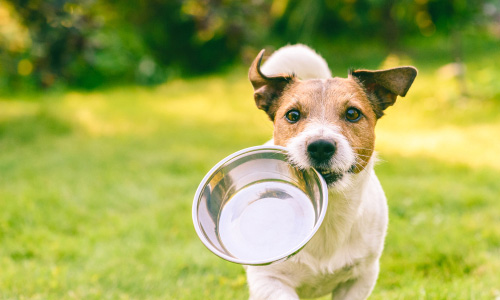
Should CBD Be Regulated In Pet Food
With the legalization of marijuana in different states across the US, the sale of cannabidiol and related products has increased dramatically. Marijuana, also known as Cannabis, is a plant that contains many active chemicals but the most commonly known chemicals are delta-9-tetrahydrocannabinol, also known as THC, and cannabidiol, also known as CBD. THC is the psychoactive chemical that produces the “high” associated with marijuana use. CBD is a non-psychoactive chemical extracted from cannabis which has gained more widespread use in a variety of products for its supposed health benefits
While THC can be toxic for pets, CBD is largely considered to have health benefits for pets including relief from anxiety, chronic pain, and seizures. It is also known to reduce inflammation, stimulate appetite, and improve skin health. According to projections, CBD products in the pet food industry will generate $1.1 billion in revenue by 2025.
These products are readily available to US consumers at retail and online stores in the form of oils, treats, or lotion. However, according to the Food and Drug Administration (FDA), CBD and other hemp-based products are not approved for animal consumption, either as a drug or a food supplement. This lack of approval has led to confusion about whether these products are legal and safe for pets
Consumption of CBD in pets may also lead to liver damage, drug interactions, and other possible side effects including drowsiness, diarrhea, and vomiting. The overall lack of research into the safety of CBD consumption in pets leads to CBD being added to the long list of unapproved pet foods available in the market.
Why CBD Pet Food Needs Regulation
A lot of things about CBD consumption in pets are unclear. Regardless of if CBD is helpful or harmful to pets, the sale of unregulated products can be damaging to your pet’s health. Let us look at the three key reasons:
SAFETY
Unregulated food supplements or drugs might contain psychoactive compounds in non-therapeutic quantities. They might also contain adulterants that could do more harm than good.
FALSE CLAIMS
While the effects of CBD on pets are largely believed to be positive, a lot of research is currently pending to prove anything concrete. If CBD does prove to be beneficial, it is still required to be administered in the correct dosage. One study found that most commercially available CBD products have significantly different concentrations than specified on the label.
EFFICACY
There are few research-backed claims for the intended use of CBD pet food. We cannot say for sure whether the product will have the desired effect.
Hemp as a Feed Ingredient
While regulation can be a costly affair for the governing bodies and the regulations can be difficult to enforce, it is still necessary to ensure safe pet food supplements through proper regulations.
Hemp products in pet food should only be fed in consultation with a veterinarian who has experience in prescribing CBD products to animals. The products should also only be purchased from reliable brands to ensure that the contents of the products match the description..
CBD needs to be regulated to ensure safe use and to prevent any avoidable side effects on pets. But while the FDA takes steps towards the regularization of hemp products for animals, manufacturers must regulate the products by themselves to avoid any harm to pets.
S.Howes makes quality shakers with superior screening capabilities, widely used in preparing animal feed. We advise the cautious use of hemp as animal feed and to give due consideration to what the various regulatory bodies have to say about it. Contact us to learn more about our range of mixing, conveying, and alteration equipment.